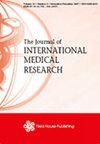术前虚弱与非心脏手术后并发症:系统性综述
IF 1.4
4区 医学
Q4 MEDICINE, RESEARCH & EXPERIMENTAL
引用次数: 0
摘要
目标许多工具都被用于评估围手术期的虚弱程度。然而,没有一种量表能最有效地预测术后并发症。我们评估了几种虚弱量表与不同非心脏手术后并发症发生率之间的关系。方法本系统性综述已在 PROSPERO(CRD42023473401)上注册。检索策略包括 PubMed、Google Scholar 和 Embase,涵盖 2000 年 1 月至 2023 年 7 月期间发表的手稿。我们纳入了使用特定量表评估虚弱程度并追踪患者术后情况的前瞻性和回顾性研究。由于潜在疾病对患者功能状态的影响,有关心脏、神经外科和胸外科手术的研究被排除在外。此外,还排除了叙述性综述、会议摘要以及缺乏对虚弱的全面定义的文章:其中 7 篇涉及非心脏外科手术,36 篇涉及普通和消化外科手术,19 篇涉及泌尿外科手术,22 篇涉及血管外科手术,36 篇涉及脊柱外科手术,25 篇涉及骨科/创伤外科手术。经审查的手稿证实,在这些外科领域中,各种虚弱量表已被用于预测术后并发症、死亡率和住院时间。本文章由计算机程序翻译,如有差异,请以英文原文为准。
Preoperative frailty and postoperative complications after non-cardiac surgery: a systematic review
ObjectiveMany tools have been used to assess frailty in the perioperative setting. However, no single scale has been shown to be the most effective in predicting postoperative complications. We evaluated the relationship between several frailty scales and the occurrence of complications following different non-cardiac surgeries.MethodsThis systematic review was registered in PROSPERO (CRD42023473401). The search strategy included PubMed, Google Scholar, and Embase, covering manuscripts published from January 2000 to July 2023. We included prospective and retrospective studies that evaluated frailty using specific scales and tracked patients postoperatively. Studies on cardiac, neurosurgical, and thoracic surgery were excluded because of the impact of underlying diseases on patients’ functional status. Narrative reviews, conference abstracts, and articles lacking a comprehensive definition of frailty were excluded.ResultsOf the 2204 articles identified, 145 were included in the review: 7 on non-cardiac surgery, 36 on general and digestive surgery, 19 on urology, 22 on vascular surgery, 36 on spinal surgery, and 25 on orthopedic/trauma surgery. The reviewed manuscripts confirmed that various frailty scales had been used to predict postoperative complications, mortality, and hospital stay across these surgical disciplines.ConclusionDespite differences among surgical populations, preoperative frailty assessment consistently predicts postoperative outcomes in non-cardiac surgeries.
求助全文
通过发布文献求助,成功后即可免费获取论文全文。
去求助
来源期刊
CiteScore
3.20
自引率
0.00%
发文量
555
审稿时长
1 months
期刊介绍:
_Journal of International Medical Research_ is a leading international journal for rapid publication of original medical, pre-clinical and clinical research, reviews, preliminary and pilot studies on a page charge basis.
As a service to authors, every article accepted by peer review will be given a full technical edit to make papers as accessible and readable to the international medical community as rapidly as possible.
Once the technical edit queries have been answered to the satisfaction of the journal, the paper will be published and made available freely to everyone under a creative commons licence.
Symposium proceedings, summaries of presentations or collections of medical, pre-clinical or clinical data on a specific topic are welcome for publication as supplements.
Print ISSN: 0300-0605

 求助内容:
求助内容: 应助结果提醒方式:
应助结果提醒方式:


